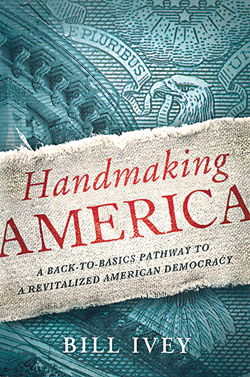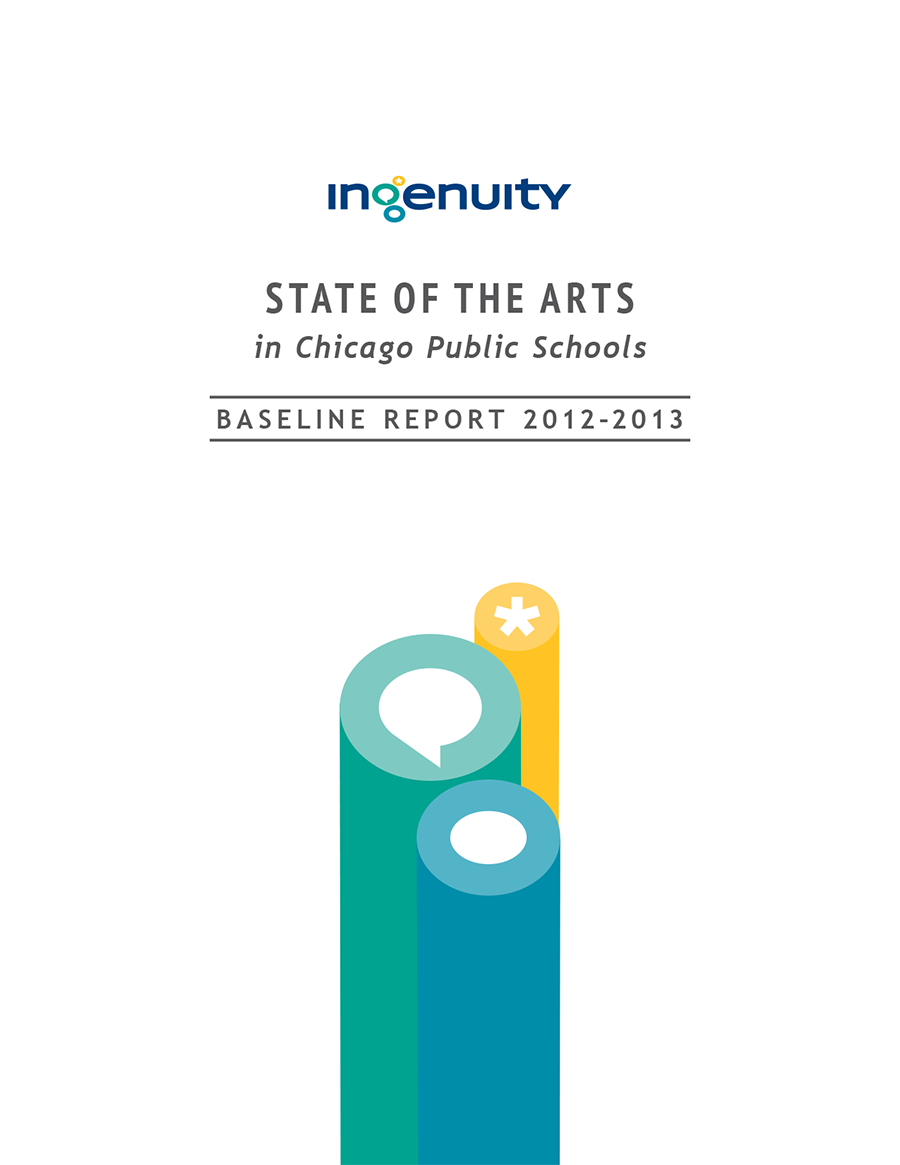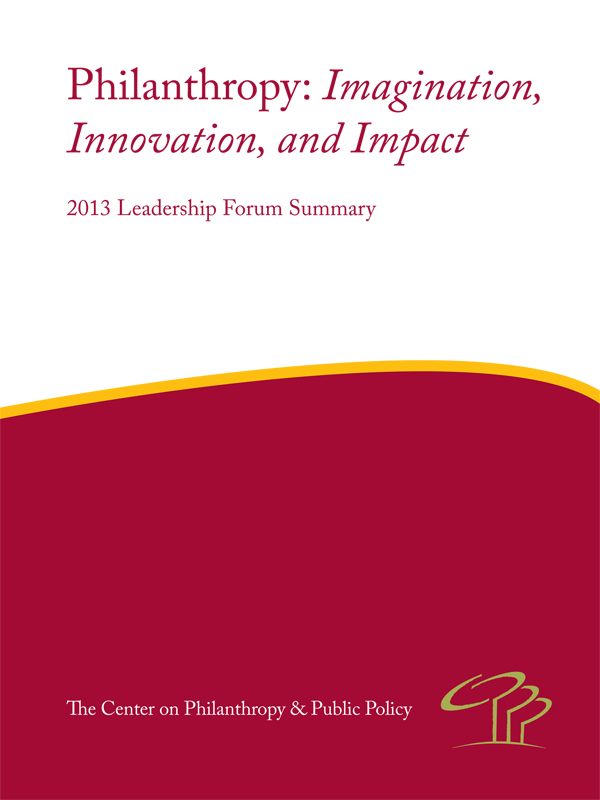Public Policy & Advocacy
Grantmakers in the Arts holds public policy and advocacy as one of its core funding focus areas and believes one of the most important roles we can serve in benefitting our members and the arts grantmaking community – maximizing the impact our sector can have toward increasing access to the arts and realizing intersectional justice through the arts – comes through our advocacy and funder education on public policy and on supporting advocacy. In GIA’s vision for the future, foundations have shifted their foci to increasingly include advocacy and public sector policy and practice.
Grantmakers in the Arts is monitoring the actions of our nation's federal government and the field’s responses. Please find HERE GIA’s evolving document developed to capture emerging information on the federal government’s recent actions, their impacts on the nonprofit and grantmaking communities and how the philanthropic and nonprofit communities are responding. This is a living document to which you can add information.
Grantmakers in the Arts’ Public Policy & Advocacy work has 2 main components:
1. GIA educates funders about how they can advocate and support both advocacy and lobbying.
GIA learns from and provides professional development to public agencies that support the arts and artists at the state and local levels, including through the new GIA Public Sector & Cultural Policy Committee.
2. GIA advocates and lobbies for federal governmental policies that benefit artists and other workers as well as students, seniors, children and caregivers.
FUNDER EDUCATION
GIA educates funders about how they can advocate and support both advocacy and lobbying.
Foundations, nonprofit organizations and public agencies can advocate and support advocacy. Advocacy is focused exclusively on raising awareness of issues and the impacts of approaches.
Lobbying seeks more targeted influence. Grassroots lobbying is the action of informing the public about an issue and asking them to take direct action, vote for a certain bill, for instance. Direct lobbying is the action of speaking to a government official with an express ask to take direct action such as voting for a certain bill.
The difference between advocating and lobbying can be identified by asking, “Is there a discrete piece of legislation under discussion? Am I encouraging someone to vote for or against that legislation?” If the answer is no, then you are advocating. If the answer is yes, you are lobbying.
Far more of us can engage in or support lobbying than we often realize. Nonprofits can lobby and foundations can support lobbying.
- Community foundations can lobby.
- Private foundations CANNOT lobby UNLESS the legislation affects the foundation’s existence, its powers and duties, its tax-exempt status, or the deductibility of contributions. In those cases, the foundations can lobby invoking the Self-Defense Exemption, Internal Revenue Code § 4945(e).
- ALL foundations CAN support lobbying.
- Foundations CAN support nonprofits’ lobbying through general operating, program or project support as long as none of their funds are earmarked for lobbying.
- Foundations CANNOT say, “Here’s your lobbying money.” Foundations CAN say, “Here’s your grant and we recognize that some of it will be used for lobbying.”
STATE AND LOCAL PUBLIC AGENCIES
Recognizing the important impact on our communities of government practice, GIA learns from and provides professional development to public agencies that support the arts and artists at the state and local levels. In 2025, GIA is piloting the GIA Public Sector & Cultural Policy Committee. The committee will be an incubator for state and local funder organizing and cultural advocacy, cross-sector collaboration, and intersectional equity toward economic justice and is the newest addition to GIA’s commitment to public policy & advocacy. The committee will advise, inspire, and inform GIA’s thought leadership and programming in support of more equitable cultural funding and public policy. The inaugural committee includes representatives from the arts agencies of the state of Illinois; the state of Massachusetts; Berkeley, CA; San Francisco, CA; New Orleans, LA; Toledo, OH; Providence, RI; Austin, TX; and a colleague formerly of National Endowment for the Arts. Advocacy Nonprofits: Creative West; Center for Story-Based Strategy; Music Export Memphis; One Square World. Foundations: Hyde Family Foundation; Barr Foundation. You may find more information HERE.
This committee follows GIA’s first public policy track at our 2024 national conference and the Cultural Policy Learning Series & Action Lab, a leadership and professional development community of practice program for public sector workers who seek to advance intersectional equity through arts and culture and public policy. These are all steps toward realizing the recommendations in the GIA-commissioned report, Opportunities at the Intersections: Advancing Racial Equity via Arts and Culture in the Public Sector, written by Jen Cole and Rebecca Kinslow.
ADVOCACY AND LOBBYING
GIA advocates and lobbies for economic justice for workers, including artists. GIA advocates for a guaranteed income. Guaranteed income has its roots in the racial and gender justice movements of the 1960s when both Dr. Martin Luther King, Jr. and the Black Panther Party advocated for the policy. GIA advocates for portable benefits for workers. Benefits tied to employment is a historic relic meant to prevent people of color from accessing health insurance and other benefits. This relic discourages entrepreneurship and risk-taking, and has racialized outcomes. GIA has released a call for our stakeholders to endorse the Portable Benefits for Independent Workers Pilot Program Act.
In our support of equity, GIA is race-explicit but not race-exclusive. GIA advocates for cultural and economic self-determination for people with disabilities especially in light of intersecting forms of oppression for racialized people with disabilities. GIA advocates for changing public policies to allow people with disabilities, including artists, to secure greater resources for their work without being rendered ineligible for public supports. GIA is endorsing the Allowing Steady Savings by Eliminating Tests Act (the ASSET Act). The bill raises the limits on assets people with disabilities can hold before being disqualified from public benefits while also indexing those limits to inflation. The bill also prohibits states from using asset tests for Temporary Assistance for Needy Families program (TANF), Supplemental Nutrition Assistance program (SNAP), and Low Income Home Energy Assistance (LIHEAP).
As part of our support for cultural and economic self-determination, GIA advocates for the solidarity economy. GIA has advocated for all members of Congress to support the National Worker Cooperative Development and Support Act (HR 7221), which aims to promote and expand worker-owned cooperative businesses in the United States by endowing the Small Business Administration, Internal Revenue Service, Department of the Treasury, Department of Commerce, United States Department of Agriculture, and Department of Labor with responsibilities and authorities to implement programs and initiatives to support worker co-ops. Individuals and nonprofits can endorse here. Here is more information on the bill. Support to artists working as part of solidarity economies has risen from 7% of GIA’s member survey respondents in 2022 to 13% in 2023 – almost twice as many. Support to organizations working as part of solidarity economies has gone from 0 survey respondents in 2022 to 13% in 2023.
GIA has successfully lobbied to include arts-related provisions in the Child Care for Working Families Act, which proposes to better help low-income families pay for childcare and expand high-quality state preschool options. GIA advocated for AmeriCorps to make national volunteer service more accessible by offering an increase in living allowances.
GIA lobbies for policies that strengthen the nonprofit cultural sector and the public education system, which employ artists while benefiting society as a whole. GIA are committed to invigorating funding and support for arts education within federal policy, and defend that every resident has access to the arts as part of well-rounded, life-long education. Over the past several years, GIA has worked to raise the visibility of the arts in the Elementary and Secondary Education Act (ESEA) and the Every Student Succeeds Act (ESSA), provisions we helped integrate into the legislation. Thanks to ESSA, GIA guides our members and their grantees in advocating for new or expanded arts programs at their local schools and districts.
Organized since 2012, GIA’s Arts Education Funders Coalition (AEFC) has worked to address identified needs in comprehensive arts education and to strengthen communication and networking among arts education funders. The AEFC includes members from Americans for the Arts, Arts Education Partnership, Center for Cultural Innovation, The George Gund Foundation, The Heinz Endowments, The William & Flora Hewlett Foundation, and Wallace Foundation, among others. Advised by a committee of Coalition members, GIA engages the services of Washington, D.C.-based Penn Hill Group, a firm with education and labor policy expertise and experience working with diverse education groups to research, develop, and promote educational and labor policy strategies.
Most recently, GIA worked with Representative Suzanne Bonamici (D-OR) on the development of the Arts Education for All Act, the broadest arts education policy bill ever introduced in Congress. In Spring 2021, GIA influenced the U.S. Department of Education to highlight the importance of equitable access to arts and culture when determining how to reopen schools. Additionally, GIA emphasized the need to make explicit how this access was racialized prior to the pandemic. Addressing this inequity was essential to effective reopening and remains essential to the adequate provision of comprehensive, well-rounded education. GIA advocates and lobbies for lifelong learning. GIA is delighted that, in 2020, Congress passed the Supporting Older Americans Act including our recommendations that the Administration on Aging include the arts in the issues to be identified and addressed and be included among supportive services for older Americans.
GIA is eager to continue informing the field’s support for advocacy and to advocate for public policies that enhance lifelong access to the transformative power of arts and culture and create economic justice for artists and other workers.
February 2015, 32 pages. Minnesota Citizens for the Arts, 2233 University Avenue W. #355, St Paul, Minnesota, 55114, (651) 251-0868. creativemn.org.
Download:
Read More...July 2014, 46 pages. Ingenuity, 11 E. Hubbard, Suite 200, Chicago, Illinois, 60611. (312) 583-7459. http://www.ingenuity-inc.org.
Download:
Read More...An American lady traveling to Paris in 1913 — the kind of American lady who will still be traveling to Paris in 2013 — asked Ezra Pound what he thought art was for. Pound replied: “Ask me what a rose bush is for.”
Europe was on the edge of war. Do rose bushes matter in a war? What can art do for us now, in the likelihood of another war?
Read More...In January I had the privilege to attend the Future Aesthetics 2.0 retreat, co-organized by Marc Bamuthi Joseph, director of Performing Arts of the Yerba Buena Center for the Arts, and James Kass, executive director of Youth Speaks. Participating were twenty-three performance-based artists, Helicon Collaborative partners Holly Sidford and Alexis Frasz, and Cheryl Ikemiya from the Doris Duke Charitable Foundation, which funded the project through its Fund for National Projects.
Read More...December 2013, 28 pages. The Center on Philanthropy and Public Policy, Sol Price School of Public Policy, University of Southern California, Lewis Hall 210, Los Angeles, CA 90089-0626, (213) 740-9492, http://cppp.usc.edu
Download:
Read More...
Arlene Goldbard. 2013, 185 pages, Waterlight Press
The Wave
Arlene Goldbard. 2013, 129 pages, Waterlight Press
Read More...Bill Ivey. 2012, 192 pages, Counterpoint.

In his new book we learn about many of the things Bill Ivey doesn’t like:
- banner ads
- smart phones
- the $6 billion yoga industry
- politicians who hide behind polling
- cable news
- $4,000 mountain bikes
- TV in general; cooking shows in particular
And we learn about some of the things Bill Ivey does like:
- Leica cameras
Grantmakers in the Arts began its work to enhance the arts in federal education policy in 2012 when it created the Arts Education Funders Coalition, an interest group within GIA that is open to funders with an arts education passion and portfolio, whether they are members of GIA or not. Led by a small advisory committee, we contracted with Penn Hill Group, a Washington, D.C., policy and lobbying firm with expertise in education.
Read More...Every decade or two, the professions of architecture and city planning are captivated by a movement with a particularly catchy name. Currently, the popular term is placemaking — a fairly loose term that is running neck and neck with “sustainability.” Within the design professions, this movement — really more a philosophy — suggests that people’s lives can be made better by intentionally designing interior and exterior spaces to embrace a wide range of users, provide for safety, and create artful expressions that endure over time.
Read More...


